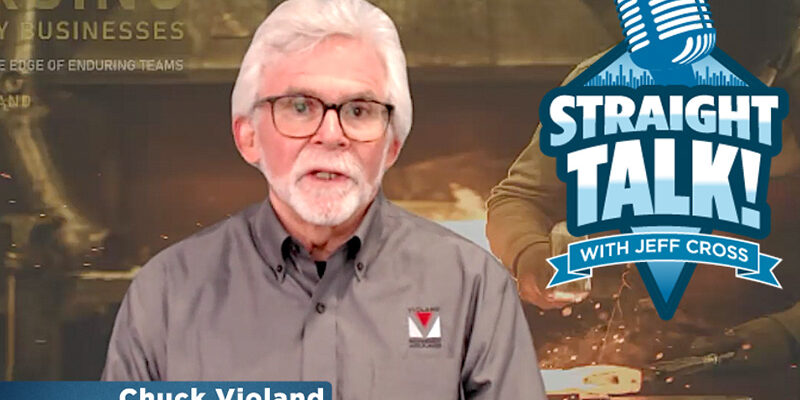Do You Clean Apartments?

For many years, I have tried to understand why the industrious workers who clean carpet in apartment complexes are consistently underestimated. Uninformed people may think it is a job anyone can do and that they don’t get paid much. Others may believe that it doesn’t require any education or training. They may think fancy, expensive equipment or techniques are not needed. These opinions are just not true. As a representative of professionals in the cleaning industry, I know we deserve better.
Once upon a time …
I left my country for security reasons 25 years ago. I had attended university, earned my degree in finance, and worked for large government banking organizations for nine years. My wife Susie and I, along with our two children, Laura (5 years old) and Sergio (5 months old), moved to Florida. We had a difficult start, especially in terms of financial stability, not to mention language and cultural barriers.
After my first year working as a driver for a local transportation company in South Florida, I applied to work for a carpet cleaning company. I knew nothing about the industry but was expecting to earn some work experience and improve my English. After two years there, the company went out of business, and only three days later, I was hired at a small cleaning and restoration company. You can’t say that our industry isn’t dynamic.
Gaining experience
After two years of learning about carpet cleaning, carpet dying, carpet repairs and stretching, water damage, sewage cleaning, and other services, my skills went from 0% to 70% in a short period of time. I felt great; I was learning another profession that I liked. I enjoyed going to different places every day, having different challenges to fix and different people to meet, and my income started to change, too.
However, I began to understand a business owner’s mentality, especially when I asked for the opportunity to go to IICRC classes. I told my boss that I wanted to know more about my work and that I wanted to be the best. He told me, “You won’t learn too much from these classes; the most valuable thing in this business is experience, and you will get it with time.” After hearing these words, I thought, “If I have my own business, education will be my priority.”
During my time with this company, I provided services in hundreds of apartments and learned to deal with community managers, maintenance supervisors, and tenants. In addition, I got better at looking for water spigots, parking in reverse, and keeping the keys of the units in a safe place. I survived the odor of the red stain remover, cut my fingers with a knife while reinstalling carpet after water damage, and ran after pets that tenants left unattended. Believe me when I tell you that all these experiences were positive. I learned from each mistake and accumulated the experience my amazing boss recommended that I get. He was amazing, and I will always be grateful for the opportunities that he gave me.
Later, life changed again, and our family moved to Gainesville, Florida. Football fans will recognize that we are in Gator Nation, where the University of Florida receives thousands of students every year, and those students need somewhere to live. Yes, that is correct; those students most often live in apartment complexes.
In 2004, I started working for my third carpet cleaning company, but I was ready to bring something else to the table. I had invested in a Chevrolet Express 2500 van fitted with a Prochem BLAZER. My lease and insurance were expensive, but it was the best investment of my life. My boss at this company had good connections with the larger student apartment complexes, so I hit the ground running.
During 18 months with this company, I had the opportunity to meet several local and regional office managers, service technicians, and other potential customers who liked my customer service and the quality service that I was providing. Within that time frame, Hurricane Katrina happened, and I was quickly sent to New Orleans. You can bet I was getting that 30% of knowledge that I was missing at my previous job, preparing me for my next new challenge.
Striking out on my own
In January 2006, exhausted from working far away from my family, I decided to open my own business with a focus for the most part on services for apartments. We started our business in a two-bedroom apartment; there wasn’t enough money for three bedrooms. The initial vision was to do carpet cleaning and water damage; but in time, we added carpet repairs, tile and grout cleaning, air duct cleaning, and many more services.
I will always remember asking my then-boss to join me on this new venture, but he refused. He told me that he had a lot of drying equipment and would be waiting for the next storm. The next storm came, but it came five years later, after I bought all his equipment, which is in our warehouse today. There are a lot of opportunities out there, but waiting a long time for them is not the best idea.
A growing business
This is often when the process starts to get complicated. You do a good job, and they want to give you more work, then you need help. Your wife and a friend helped you initially; now, you need two more technicians, and then 18 years later, you have 32 team members. As far as vehicles go, too much work means you need a second truck, and a few years later, the fourth, the fifth, and today, the 16th.
Then there is your office space, which initially began in your apartment, growing to a small 1,200 square foot office, then a 3,000 square foot warehouse, and today at a 10,000 square foot space. Yes, all this is from working in apartments.
Educate yourself and your team
But the question is, how do you get here? Education, education, and education. In your first years of business, it is scary to leave the office and spend money that you don’t have to learn what other people in the same industry are doing. But you must do it.
I left my office and found great people, like Howard Partridge, who taught me a great deal about how to do a better job and be a better leader. I benefitted from the support of the Strategies for Success program by Jon-Don, especially from Jon-Don founder Nick Paolella and instructors Steve Toburen and Bill Yeadon. Marketing gurus like Sonny Ahuja or John Braun will help you make your phone ring more often. Get your certifications from IICRC and get the chance to meet instructors like Shawn Bisaillon, Barry Costa, Rachel Adams, or Joey Pickett. They will provide you with a priceless education. Attend the Experience Conference, Mikey’s Fest, the Nexus Convention, and other training and exhibition events. Nearly 90% of my vendors today came from these events.
Lastly, you have the equipment, the experience, the customers, and the most important part of your business—your team. Now is the time to implement everything you and your team are learning from the above sources. You must identify your leaders and work with them daily to build them according to your plan. Reduce your turnover to a minimum; most of our senior team members have been with us for over 10 years, and those with less time in the business are phenomenal. I learned that investing in your team members and seeing them go is better than not investing in them and keeping them aboard.
Who can help you here? I will always support the work of Super Tech University in the hands of Eric Sprague and Larry Wilberton, which is the easiest and most affordable way to help your team members with training in multiple areas. Also, I recommend you invest in yourself. For a business owner, personal growth is the part of the success formula that needs the most consistency.
My family has been a great support. My wife, who had a career in medicine before our move to the United States, went back to school and is now an oncology nurse, working often with breast cancer patients. Our daughter Laura has bachelor’s and master’s degrees in communications. Our son Sergio has been working in our family business for the last 10 years, initially only during vacations from school. After a few years of being a technician, he was promoted to operations manager, and he is climbing the ladder to one day take my place, which would be a dream come true.
My point with this last bit of family history is that this was all possible from just the income of a carpet cleaner who works with students and residential communities on a daily basis. So, the next time that you feel less than because you work in apartments, know that you and a lot of other carpet cleaners can find remarkable success in this market. Be proud of the possibility of building new businesses and help thousands of other carpet cleaners in our country that need a promising career.
Jorge Villalobos founded The Best Restoration LLC in Gainesville, Florida. He is licensed in mold remediation and forensic restoration. Villalobos is an IICRC master water restorer, a DISC trainer, a National Apartment Association facilitator, and a Ziglar Corporation trainer and certified speaker.












